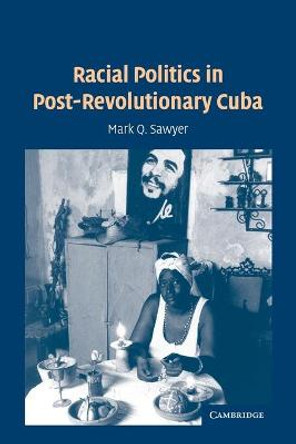Description
The Cuban revolution made improved health for ordinary Cubans a primary goal of the state and a measure of the revolution's success. From the Special Period forward, there were less resources to provide health care to everyone, but the investment in health on the part of the ordinary citizen remained. Cubans began to seek out other forms of health assistance in the informal economy, or from spiritual or alternative sources. In this fine-grained ethnography of Havana, Brotherton talks to doctors, health care providers, and everyday people, tracing out their complex attitudes toward their bodies, health, and the Cuban state.
About the Author
P. Sean Brotherton is Assistant Professor of Anthropology at Yale University.
Reviews
"Revolutionary Medicine is fabulous. In this intelligent, insightful, and nuanced book, P. Sean Brotherton takes health care as a window through which to view and understand the 'new Cuba,' which, as he notes, incorporates elements of the prerevolutionary period, the Soviet era, and the post-Soviet era. Both substantively and analytically, this is a book of very high quality."-Susan Eckstein, author of Back from the Future: Cuba under Castro
"Others have studied the Cuban health system, but no one has delved into the political dynamics of Cuba's universal health provision in the way that Brotherton has.... [T]his study... is an enormous contribution to our understandings of a tumultuous period of Cuban life and demonstrates the power of ethnographic analysis to those outside anthropology who belatedly discover Brotherton's excellent analysis." -- Thomas F. Carter * Anthropological Quarterly *
"This is a must-read book for the important questions that it asks, the lens through which Brotherton examines the Cuban experience of the health care system, and the carefully collected and analyzed data. . . . It is theoretically provocative, successfully problematizing conventional models of agency in health behavior and especially in the context of the Cuban health care system." -- Kathleen Musante Dewalt * American Ethnologist *
"In this excellent analysis of the impact of change since 1989, Brotherton provides a rich ethnographic picture of what this has meant in practice for both medical professionals and citizens seeking treatment.... This is a thought-provoking and sensitive study that will be of major interest both to public health professionals as well as scholars." -- Gavin O'Toole * Latin American Review of Books *
"The book does a brilliant job of demonstrating the productive relationships between individual bodily practices and macro-level socioeconomic change. Brotherton makes valuable contributions to analytic understandings of medically mediated citizenship, subjectivity, and the limits of individual agency and state authority in a context of ongoing economic crisis. Revolutionary Medicine would be an excellent stand-alone text to read in graduate or undergraduate courses in Latin American studies, medical anthropology, global health, or the medical humanities." -- Amy Cooper * Somatosphere *
"Revolutionary Medicine is a an engaging and theoretically curious ethnography which masterfully connects global macroeconomic changes to the micropolitics of health in contemporary Cuba, and will speak to a wide range of disciplines and scholars within medical anthropology, public health, political sciences and Latin American studies." -- Eva Vernooij * Medische Antropologie *
"Revolutionary Medicine...represents an important contribution to an emergent anthropological literature on the Cuban State in the post-1990 era...It will be of interest to a broad range of readers, including undergraduates, graduate students and specialists in global health, medical anthropology, political theory and Latin American studies." -- Jennifer Lambe * Global Public Health *
"Brotherton's book is a comprehensive, engaging, and original account of the health landscape in Cuba from the outset of the 'Special Period' of the 1990s...This intriguing book, over a decade in the making, is worthy of the time invested in it--it makes a valuable contribution to the literature on health in Cuba." -- Elizabeth Kath * Bulletin of the History of Medicine *
"Brotherton's work has an important place within Cuban studies literature for two reasons. First, his attention to detail is phenomenal . . . The second important reason is that voices of dissent against the Cuban system, or against any system, are imperative for furthering our understanding of how policies and programs can shape the lived experiences of individuals." -- Robert Huish * Anthropos *
"The book is based on more than 10 years of intermittent fieldwork and hundreds of interviews with medical professionals and patients. This wealth of ethnographic material is channeled into a fluent analysis that makes it an exceptional read.... The monograph possesses a literary quality (i.e. it is highly descriptive and showcases wonderfully compelling stories), provides plenty of complementary visual material, and it reads well despite the theoretical depth." -- Karina Vasilevska * Anthropological Notebooks *
Book Information
ISBN 9780822351948
Author P. Sean Brotherton
Format Hardback
Page Count 288
Imprint Duke University Press
Publisher Duke University Press
Weight(grams) 494g






